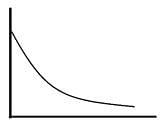Chemistry Exam > Chemistry Tests > Test: Schrodinger Equation (Time Dependent Form) - Chemistry MCQ
Test: Schrodinger Equation (Time Dependent Form) - Chemistry MCQ
Test Description
10 Questions MCQ Test - Test: Schrodinger Equation (Time Dependent Form)
Test: Schrodinger Equation (Time Dependent Form) for Chemistry 2024 is part of Chemistry preparation. The Test: Schrodinger Equation (Time Dependent Form) questions and answers have been prepared
according to the Chemistry exam syllabus.The Test: Schrodinger Equation (Time Dependent Form) MCQs are made for Chemistry 2024 Exam.
Find important definitions, questions, notes, meanings, examples, exercises, MCQs and online tests for Test: Schrodinger Equation (Time Dependent Form) below.
Solutions of Test: Schrodinger Equation (Time Dependent Form) questions in English are available as part of our course for Chemistry & Test: Schrodinger Equation (Time Dependent Form) solutions in
Hindi for Chemistry course.
Download more important topics, notes, lectures and mock test series for Chemistry Exam by signing up for free. Attempt Test: Schrodinger Equation (Time Dependent Form) | 10 questions in 30 minutes | Mock test for Chemistry preparation | Free important questions MCQ to study for Chemistry Exam | Download free PDF with solutions
Test: Schrodinger Equation (Time Dependent Form) - Question 1
For a quantum wave particle, E = _______
Detailed Solution for Test: Schrodinger Equation (Time Dependent Form) - Question 1
Test: Schrodinger Equation (Time Dependent Form) - Question 2
Which of the following can be a wave function?
Detailed Solution for Test: Schrodinger Equation (Time Dependent Form) - Question 2
| 1 Crore+ students have signed up on EduRev. Have you? Download the App |
Test: Schrodinger Equation (Time Dependent Form) - Question 3
Find the function, f(x), for which X  where a is the real quantity.
where a is the real quantity.
 where a is the real quantity.
where a is the real quantity.
Detailed Solution for Test: Schrodinger Equation (Time Dependent Form) - Question 3
Test: Schrodinger Equation (Time Dependent Form) - Question 4
Any wave function can be written as a linear combination of ______
Detailed Solution for Test: Schrodinger Equation (Time Dependent Form) - Question 4
Test: Schrodinger Equation (Time Dependent Form) - Question 5
Which of the following can be a solution of Schrodinger equation?
Detailed Solution for Test: Schrodinger Equation (Time Dependent Form) - Question 5
Test: Schrodinger Equation (Time Dependent Form) - Question 6
Which of the following is the correct expression for the Schrödinger wave function?
Detailed Solution for Test: Schrodinger Equation (Time Dependent Form) - Question 6
Test: Schrodinger Equation (Time Dependent Form) - Question 7
Which of the following is not a characteristic of wave function?
Detailed Solution for Test: Schrodinger Equation (Time Dependent Form) - Question 7
Test: Schrodinger Equation (Time Dependent Form) - Question 8
Schrodinger Wave equation can be derived from Principles of Quantum Mechanics.
Detailed Solution for Test: Schrodinger Equation (Time Dependent Form) - Question 8
Detailed Solution for Test: Schrodinger Equation (Time Dependent Form) - Question 9
Test: Schrodinger Equation (Time Dependent Form) - Question 10
The Schrödinger is a differential equation.
Detailed Solution for Test: Schrodinger Equation (Time Dependent Form) - Question 10
Information about Test: Schrodinger Equation (Time Dependent Form) Page
In this test you can find the Exam questions for Test: Schrodinger Equation (Time Dependent Form) solved & explained in the simplest way possible.
Besides giving Questions and answers for Test: Schrodinger Equation (Time Dependent Form), EduRev gives you an ample number of Online tests for practice
Download as PDF





 Schrodinger equation is a basic principle in itself.
Schrodinger equation is a basic principle in itself.














